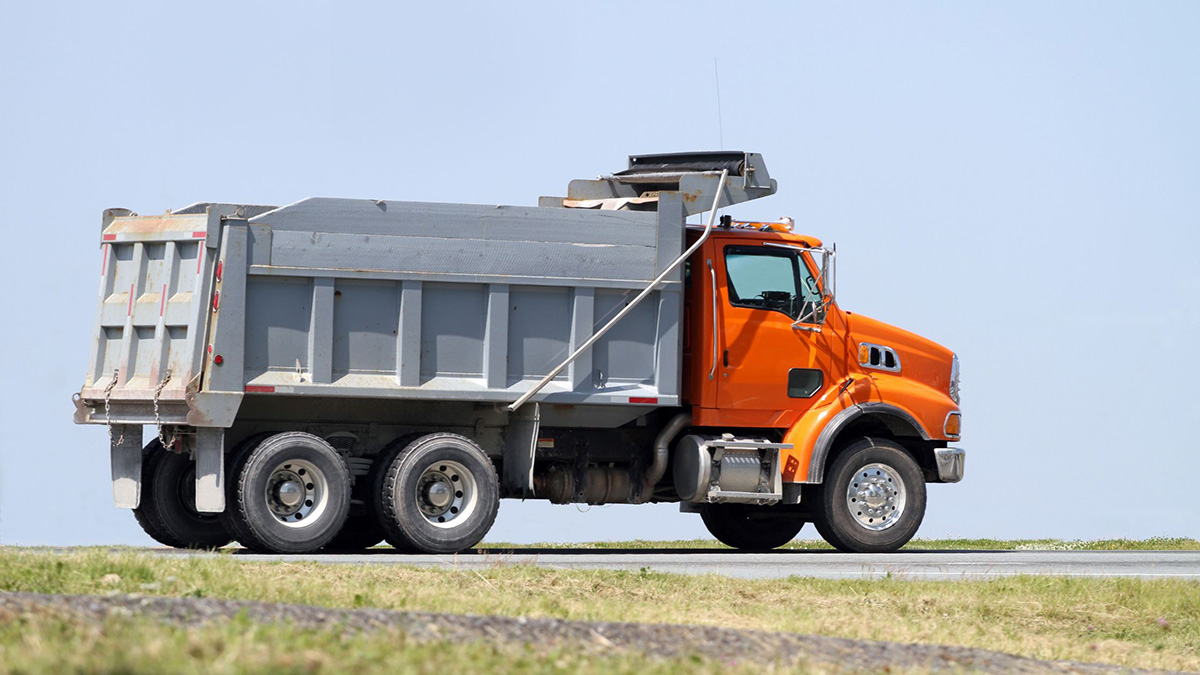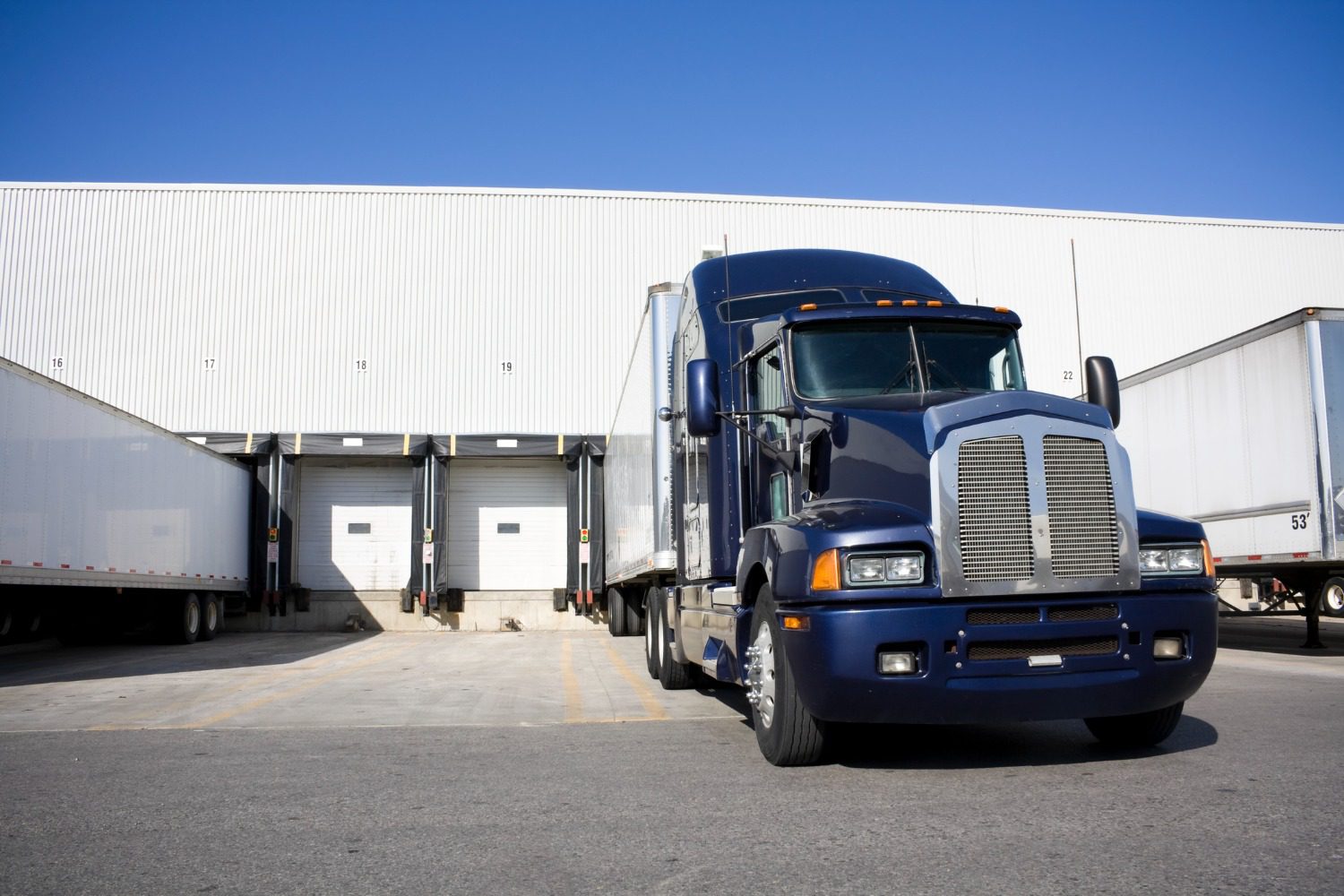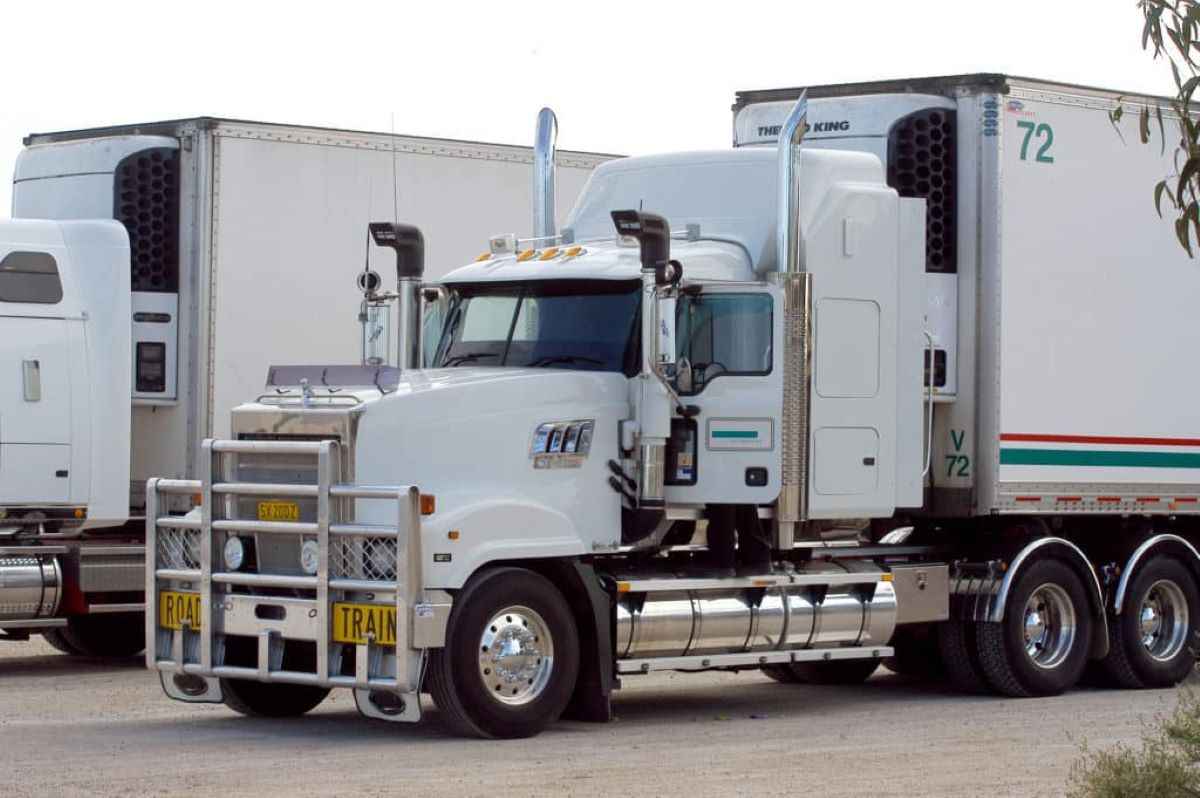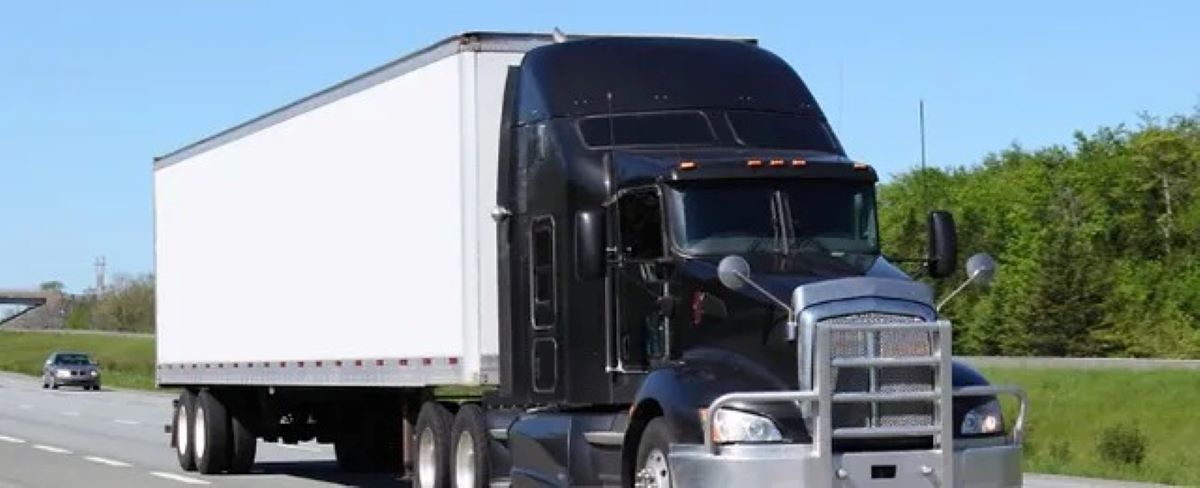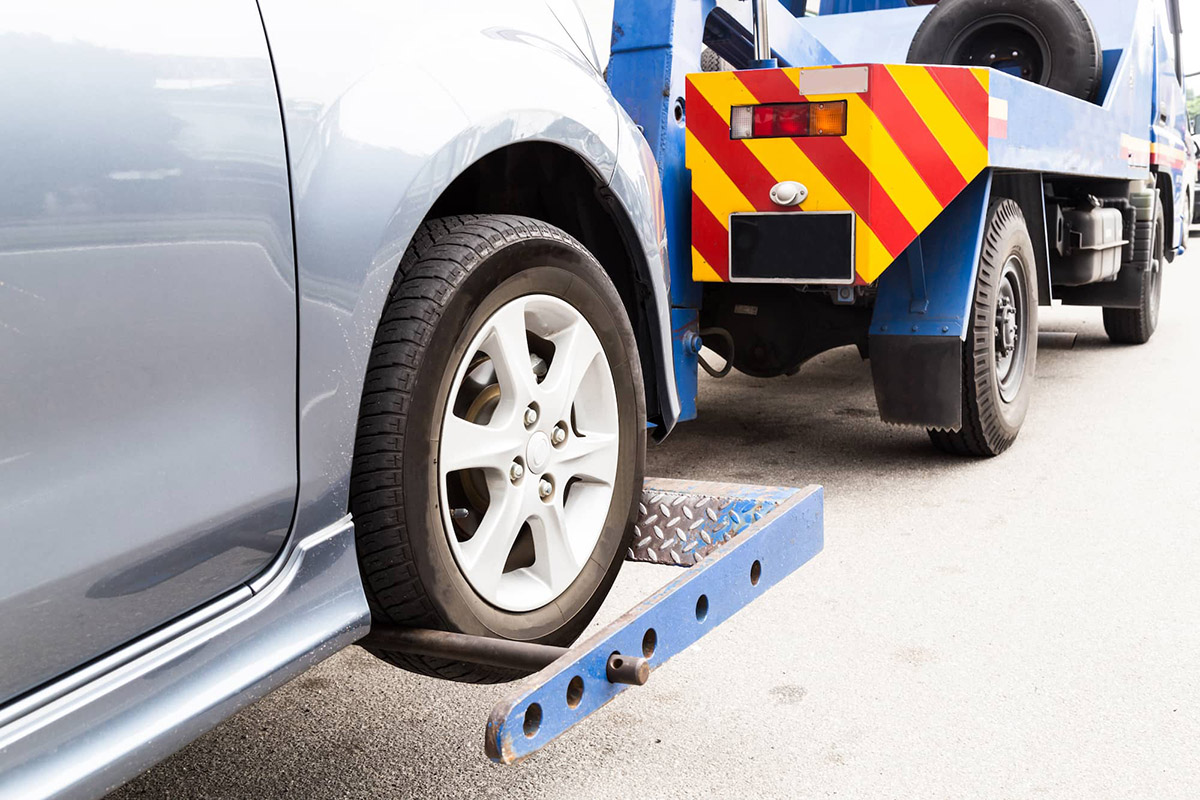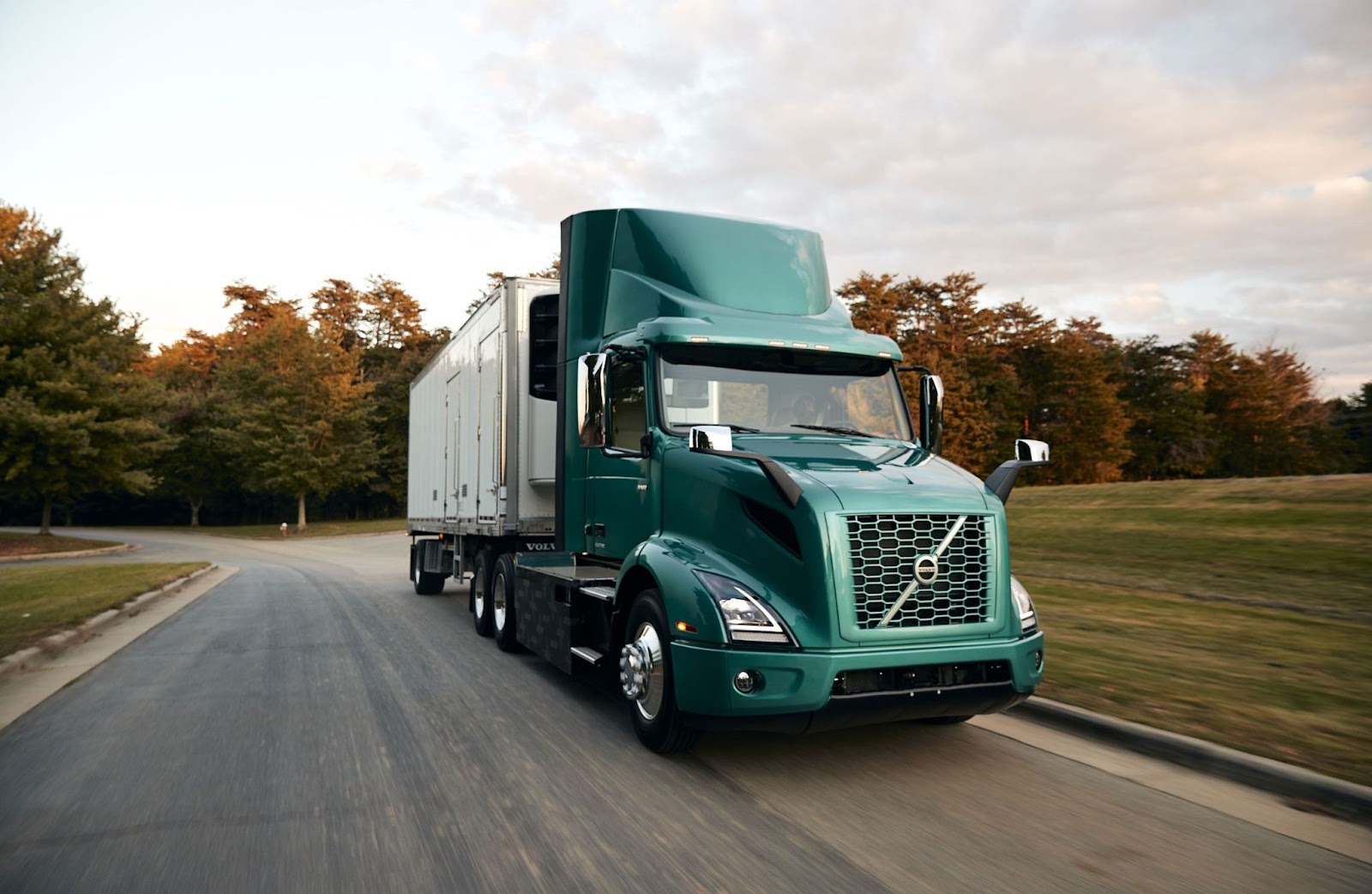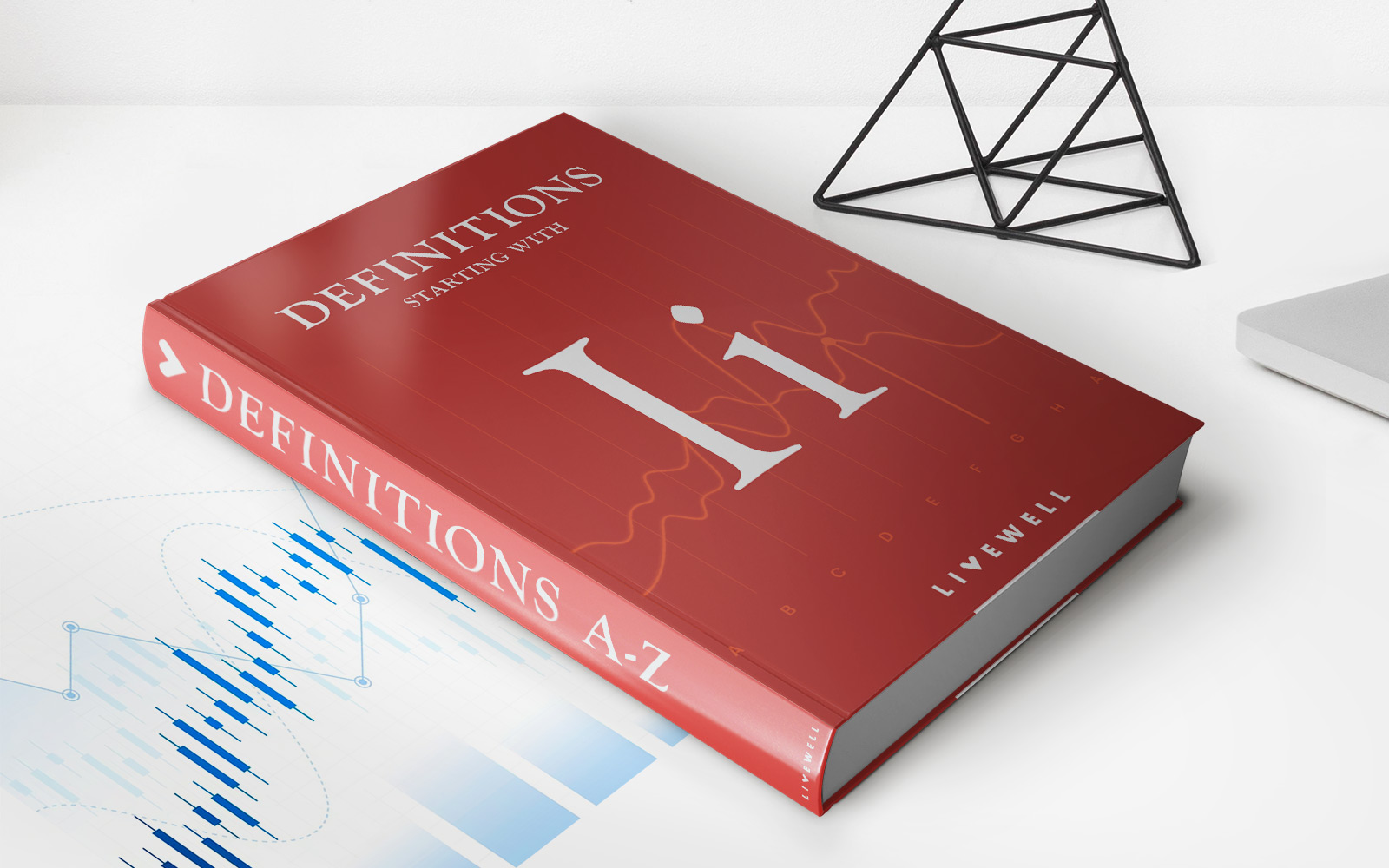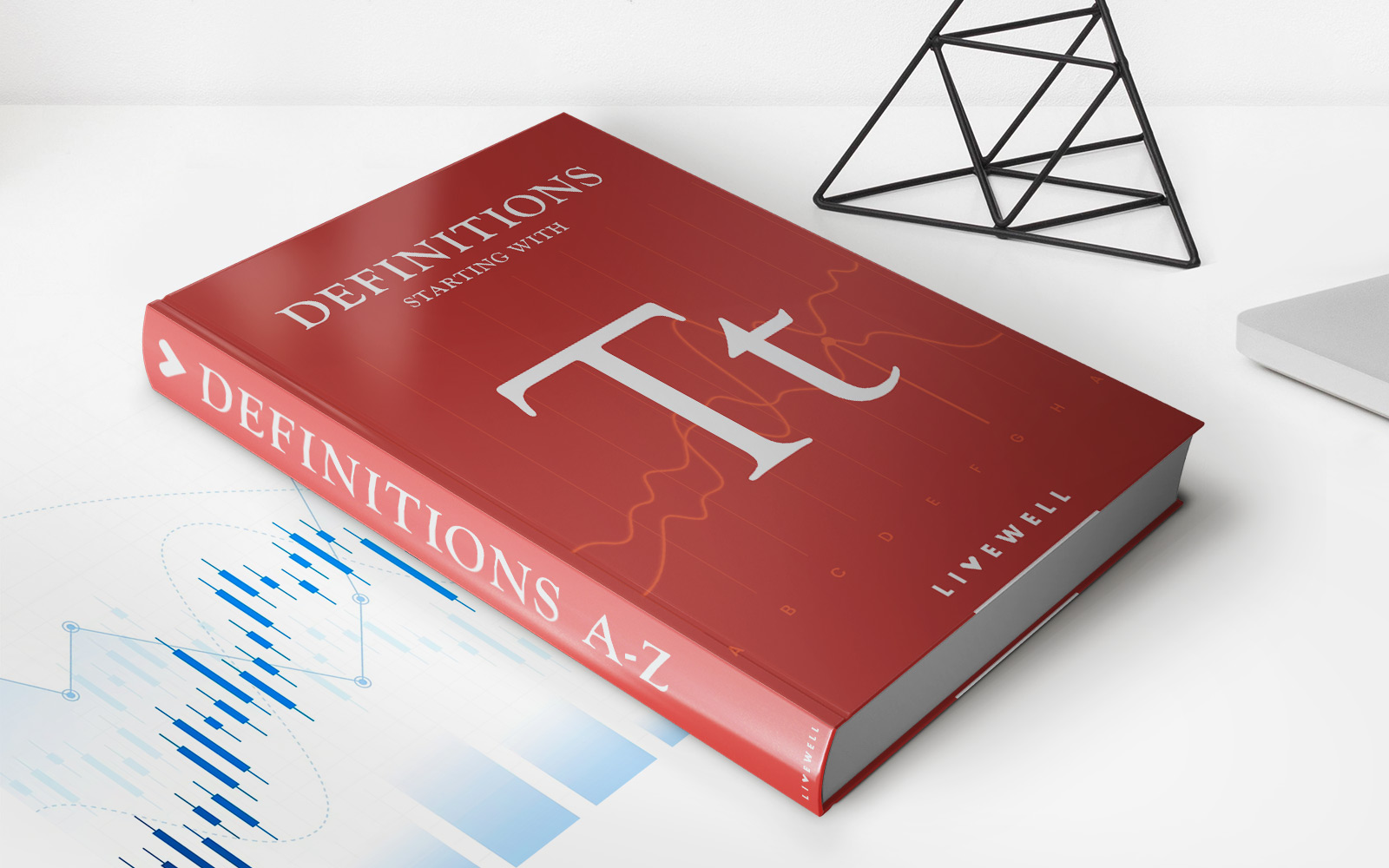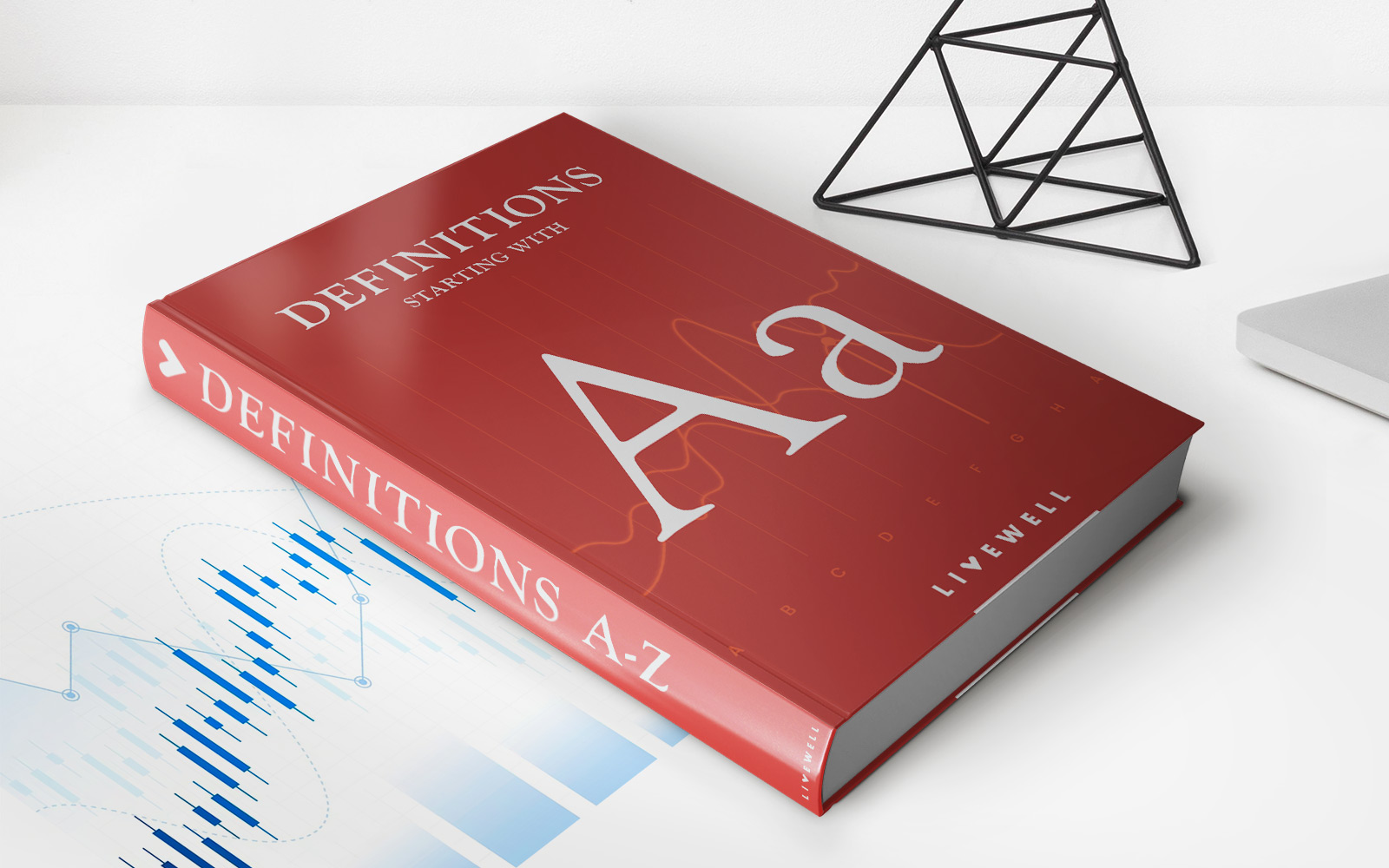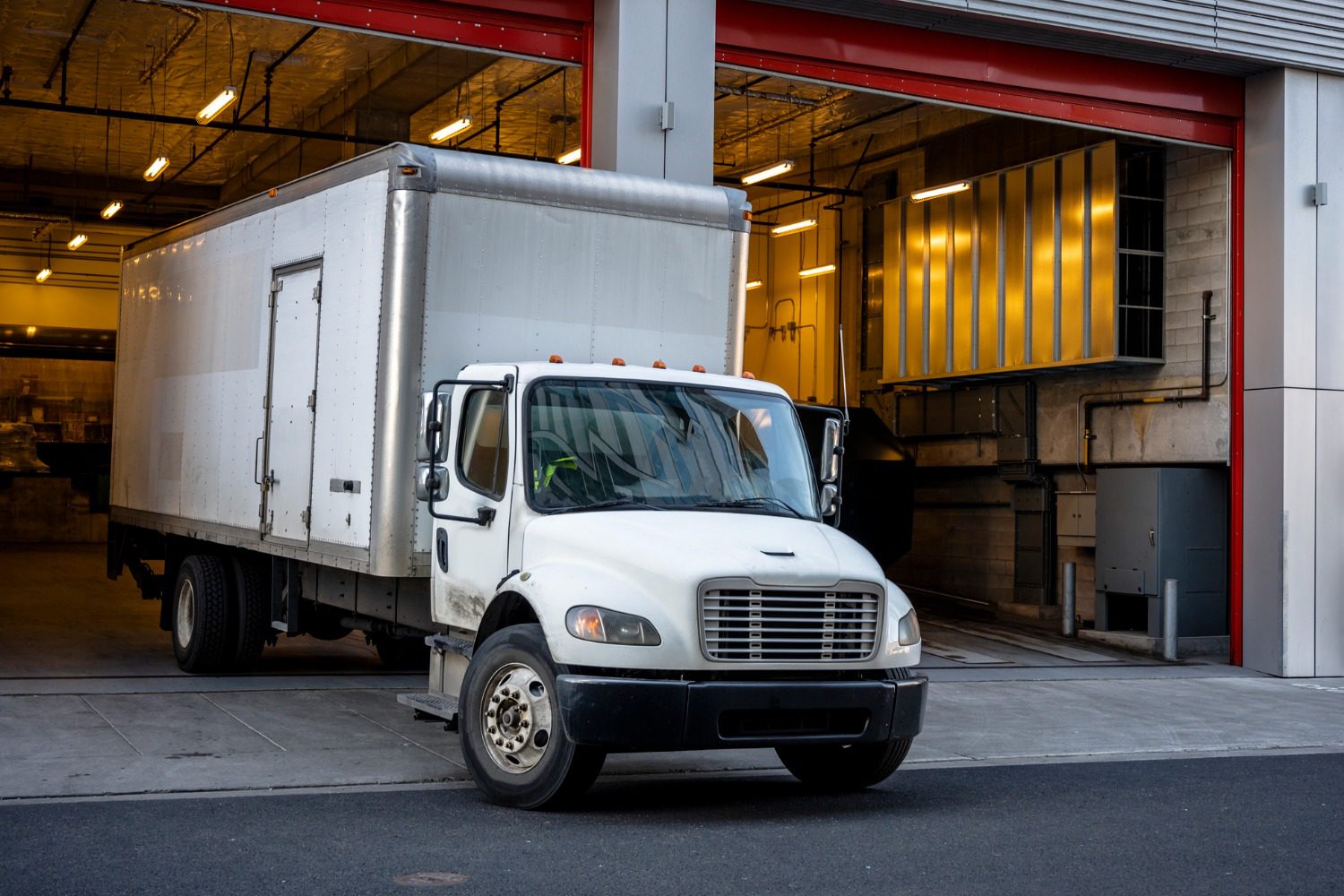

Finance
How Much Is Box Truck Insurance?
Published: November 6, 2023
Looking for box truck insurance? Find out how much it will cost with our finance experts. Get a quote today and protect your business assets.
(Many of the links in this article redirect to a specific reviewed product. Your purchase of these products through affiliate links helps to generate commission for LiveWell, at no extra cost. Learn more)
Table of Contents
- Introduction
- Factors Affecting Box Truck Insurance Rates
- Types of Box Truck Insurance Coverage
- Liability Insurance for Box Trucks
- Collision Insurance for Box Trucks
- Comprehensive Insurance for Box Trucks
- Cargo Insurance for Box Trucks
- Medical Payments Coverage for Box Trucks
- Uninsured/Underinsured Motorist Coverage for Box Trucks
- Average Cost of Box Truck Insurance
- Tips for Finding Affordable Box Truck Insurance
- Conclusion
Introduction
Box trucks play a crucial role in the transportation industry, serving as versatile vehicles for delivering goods to businesses and customers. Whether you own a single box truck or operate a fleet, it’s essential to have the right insurance coverage to protect your investment and mitigate potential risks. Box truck insurance provides financial protection against accidents, property damage, bodily injury, and other liabilities associated with operating these vehicles.
When it comes to determining the cost of box truck insurance, there are several factors that come into play. Insurance premiums are influenced by various elements such as the size and weight of the truck, the purpose of its use, the driver’s experience and record, the location where it operates, and the coverage options selected. Understanding these factors and the different types of box truck insurance coverage available can help you make informed decisions when purchasing insurance and ensure you have adequate protection.
This article will delve into the factors that affect box truck insurance rates, the different types of coverage available, and provide tips on finding affordable box truck insurance. By the end, you’ll have a solid understanding of what to look for in a box truck insurance policy and how to navigate the often complex world of commercial vehicle insurance.
Factors Affecting Box Truck Insurance Rates
Several factors influence the cost of box truck insurance. Insurance providers assess these factors to determine the level of risk associated with insuring a particular truck or fleet. Understanding these factors can help you anticipate the cost of insurance and take steps to potentially lower your premiums:
- Driving Record: Insurance companies consider the driving history of the individuals operating the box trucks. A clean driving record with no accidents or traffic violations demonstrates responsible driving habits and can result in lower insurance rates.
- Experience: The experience of the drivers is another crucial factor. Insurance providers may offer lower rates to drivers with years of experience operating box trucks, as they are typically seen as less risky to insure.
- Vehicle Size and Weight: The size and weight of the box truck can impact insurance rates. Larger and heavier vehicles may be deemed more difficult to maneuver and navigate, potentially increasing the risk of accidents or damage. As a result, insurance premiums for larger box trucks may be higher.
- Usage: The purpose for which the box truck is used also affects insurance rates. Some box trucks are used for local deliveries, while others may be used for longer hauls or interstate transportation. The frequency, distance, and type of use all play a role in determining the insurance rates.
- Location: The geographic location where the box truck operates can impact insurance rates. Areas with higher rates of accidents, theft, or vandalism may result in higher insurance premiums.
- Coverage Options: The specific coverage options selected for the box truck insurance policy also influence the rates. Comprehensive coverage, collision coverage, and additional coverage such as cargo insurance or medical payments coverage can increase the overall cost of the policy.
Keep in mind that each insurance provider may have its own formula for calculating rates, so it’s important to seek quotes from multiple insurers and compare the coverage and pricing offered.
Types of Box Truck Insurance Coverage
Box truck insurance offers various types of coverage to protect against different risks and liabilities. Understanding these coverage options can help you tailor your insurance policy to meet your specific needs. Here are some of the common types of coverage available for box trucks:
- Liability Insurance: Liability insurance is a crucial coverage for box truck owners. It provides financial protection in case you are liable for property damage or bodily injury to others in an accident. This coverage typically includes bodily injury liability and property damage liability.
- Collision Insurance: Collision insurance covers the cost of repairing or replacing your box truck in the event of a collision, regardless of who is at fault. This coverage can be essential for protecting your investment and getting your truck back on the road quickly.
- Comprehensive Insurance: Comprehensive insurance covers damage or loss to your box truck caused by non-collision incidents such as theft, vandalism, fire, or natural disasters. It provides additional financial protection beyond collision coverage.
- Cargo Insurance: Cargo insurance is vital if you transport goods for others. It covers the value of the cargo being transported, protecting you in the event of damage, loss, or theft of the goods while in transit.
- Medical Payments Coverage: Medical Payments coverage pays for medical expenses incurred by you or your passengers in the event of an accident, regardless of fault. It can help cover medical costs for injuries sustained in a box truck-related incident.
- Uninsured/Underinsured Motorist Coverage: This coverage protects you if you are involved in an accident caused by an uninsured or underinsured driver. It helps cover the costs of damages and injuries that the at-fault driver’s insurance cannot fully compensate.
When selecting coverage options for your box truck insurance, it’s essential to assess the specific risks associated with your business and tailor your policy accordingly. Consult with an experienced insurance agent who specializes in commercial vehicle insurance to ensure you have the right coverage in place.
Liability Insurance for Box Trucks
Liability insurance is a fundamental component of box truck insurance. It provides protection in case you are held responsible for property damage or bodily injury to others while operating your box truck. This coverage is essential for any business that utilizes box trucks for transportation purposes.
Liability insurance typically consists of two components: bodily injury liability and property damage liability.
Bodily Injury Liability: Bodily injury liability coverage pays for medical expenses, lost wages, and legal fees in the event that someone is injured as a result of an accident involving your box truck. This coverage helps protect you financially if someone sues you for their injuries or other related damages. It can cover costs such as hospital bills, rehabilitation, and even pain and suffering.
Property Damage Liability: Property damage liability coverage covers the cost of repairs or replacement of other people’s property if you are found to be at fault in an accident. This can include damage to other vehicles, buildings, fences, or any other objects that may be affected by a collision involving your box truck.
Liability insurance is typically expressed in two numbers, such as 50/100/50. The first number represents the maximum amount of bodily injury coverage per person, the second number represents the maximum amount of bodily injury coverage per accident, and the third number represents the maximum amount of property damage coverage per accident.
It is crucial to select liability insurance coverage that adequately protects your business and your assets. Keep in mind that state laws often dictate the minimum liability insurance requirements for commercial vehicles. However, it is advisable to consider coverage beyond the minimum to ensure you are fully protected in the event of an accident.
Consult with an insurance agent who specializes in commercial vehicle insurance to determine the appropriate liability coverage limits for your box truck insurance policy. They can guide you in selecting the right coverage and help you understand the legal requirements in your state.
Collision Insurance for Box Trucks
Collision insurance is an essential component of box truck insurance that covers the cost of repairing or replacing your box truck if it is damaged in a collision, regardless of who is at fault. This coverage helps ensure that you can get your truck back on the road quickly, minimizing downtime and disruptions to your business operations.
Box trucks are susceptible to accidents due to their size and weight, so having collision insurance in place is crucial. Without it, the cost of repairing or replacing your truck can be significant and may pose a financial burden on your business.
Collision insurance covers damages caused by collisions with other vehicles, objects, or even rollovers. It typically includes repairs to the box truck itself, as well as any damage to equipment or specialized features, such as lift gates or refrigeration units.
It’s important to note that collision insurance only covers damages to your box truck and does not extend to other vehicles or property involved in the accident. For this reason, liability insurance is still necessary to cover any damages or injuries caused to others.
When purchasing collision insurance for your box truck, you will need to consider the deductible amount. The deductible is the out-of-pocket expense you will be responsible for before the insurance coverage kicks in. Generally, higher deductibles result in lower insurance premiums, but it’s important to choose a deductible amount that you can comfortably afford in the event of an accident.
Collision insurance is vital for protecting your investment in your box truck. It provides peace of mind knowing that you can quickly recover financially from collisions and get your truck back on the road, helping to minimize any potential disruptions to your business operations.
Consult with an experienced insurance agent who specializes in commercial vehicle insurance to determine the appropriate collision insurance coverage and deductible for your box truck insurance policy. They can help you evaluate your needs and find a policy that fits your budget while providing adequate protection.
Comprehensive Insurance for Box Trucks
Comprehensive insurance is an important type of coverage for box trucks that protects against a wide range of non-collision incidents that can cause damage or loss to your vehicle. It provides financial protection for events such as theft, vandalism, fire, falling objects, natural disasters, and other unforeseen circumstances.
Unlike collision insurance, which covers damages caused by collisions with other vehicles or objects, comprehensive insurance covers damage to your box truck that is unrelated to a collision. This coverage is particularly valuable for box truck owners because it helps protect their investment from various risks and perils that can occur off the road.
Comprehensive insurance typically covers the cost of repairing or replacing your box truck if it is damaged or destroyed due to covered events. This can include damages from acts of nature such as hail, windstorms, or floods, as well as theft, vandalism, or fire.
In addition to covering the box truck itself, comprehensive insurance may also extend to other components or specialized features of the vehicle, such as equipment, custom modifications, or any permanently attached fixtures like lift gates or refrigeration units.
When selecting comprehensive insurance for your box truck, you will need to consider the deductible amount, which is the out-of-pocket expense you are responsible for before the insurance coverage kicks in. A higher deductible typically results in lower insurance premiums, but it’s important to choose a deductible that you can comfortably afford in case of a claim.
Having comprehensive insurance for your box truck provides valuable peace of mind, knowing that you are protected against a wide range of risks and perils that are beyond your control. It helps ensure that you can quickly recover financially from non-collision incidents and get your box truck back on the road.
Consult with an experienced insurance agent who specializes in commercial vehicle insurance to determine the appropriate comprehensive coverage and deductible for your box truck insurance policy. They can help you assess your needs and find a policy that provides the right level of protection for your business.
Cargo Insurance for Box Trucks
Cargo insurance is a crucial component of box truck insurance, especially if you transport goods for others. It provides coverage for the value of the cargo being transported, protecting you in the event of damage, loss, or theft of the goods while in transit.
Box trucks are commonly used to transport various types of cargo, ranging from merchandise and supplies to furniture and equipment. The value of the cargo can vary significantly, and any damage or loss can result in significant financial losses for both the carrier and the shipper.
Cargo insurance typically covers the cost of repairing or replacing goods that are damaged or lost during transportation. It can also help cover any liability you may have for the cargo, such as if the items being transported are damaged due to your negligence or improper handling.
It’s important to note that cargo insurance policies may have specific limits on coverage, deductibles, and exclusions. It’s essential to carefully review the policy and ensure that it aligns with the type of cargo you transport and the associated risks.
When selecting cargo insurance for your box truck, consider factors such as the type of cargo you typically transport, the value of the goods, and any specific requirements or regulations from your clients or industry. It’s also crucial to communicate with the shippers you work with to understand their expectations and any insurance requirements they may have.
Cargo insurance provides peace of mind for both box truck owners and their clients. It ensures that the value of the cargo being transported is adequately protected, minimizing financial losses in case of damage, loss, or theft.
Consult with an experienced insurance agent who specializes in commercial vehicle insurance to determine the appropriate cargo insurance coverage and any additional endorsements or riders that may be necessary for your specific business needs. They can help you navigate the complexities of cargo insurance and design a policy that meets your requirements.
Medical Payments Coverage for Box Trucks
Medical payments coverage is an important aspect of box truck insurance that provides financial protection for medical expenses incurred by you or your passengers in the event of an accident, regardless of fault. It can help cover medical costs for injuries sustained in a box truck-related incident.
When accidents happen, medical expenses can quickly add up, which is why having medical payments coverage is essential. This coverage is designed to provide prompt and immediate financial assistance for necessary medical treatment and related expenses.
Medical payments coverage typically pays for medical bills, hospital stays, surgeries, doctor visits, and even rehabilitation costs resulting from injuries sustained in a box truck accident. It can also include coverage for ambulance services and emergency medical transportation.
One of the significant advantages of medical payments coverage is that it extends to both the driver and passengers of the box truck. This coverage is not contingent upon who is at fault for the accident, making it valuable for ensuring that medical expenses are covered quickly and efficiently.
It’s important to note that medical payments coverage is generally limited to a specified amount per person or per accident. The coverage limit can vary depending on the insurance policy and can range from a few thousand dollars to tens of thousands of dollars.
Medical payments coverage can help alleviate the financial burden of medical expenses and ensure that you and your passengers receive necessary medical care after an accident involving your box truck. It provides peace of mind, knowing that immediate medical needs can be addressed without worrying about out-of-pocket expenses or delays in receiving treatment.
Consult with an experienced insurance agent who specializes in commercial vehicle insurance to determine the appropriate level of medical payments coverage for your box truck insurance policy. They can help you understand the options available and ensure that you have the right coverage to protect you and your passengers in the event of an accident.
Uninsured/Underinsured Motorist Coverage for Box Trucks
Uninsured/Underinsured Motorist (UM/UIM) coverage is an important component of box truck insurance that protects you if you are involved in an accident caused by a driver who either has no insurance or does not have enough insurance to cover your damages or injuries.
Unfortunately, despite legal requirements, some drivers do not carry insurance or carry only the minimum coverage amounts. In the event that you are involved in an accident with one of these drivers, uninsured/underinsured motorist coverage can help bridge the gap and ensure you have the necessary financial protection.
If you are involved in an accident with an uninsured or underinsured driver, your uninsured/underinsured motorist coverage can help cover the following expenses:
- Medical Expenses: UM/UIM coverage can help pay for necessary medical treatments, hospital stays, surgeries, and rehabilitation costs for injuries sustained in the accident.
- Property Damage: This coverage can help cover the cost of repairing or replacing your box truck if it is damaged in the accident.
- Lost Wages: If the accident causes you to miss work, UM/UIM coverage can compensate for your lost wages during the recovery period.
- Pain and Suffering: In some cases, UM/UIM coverage may provide compensation for the physical and emotional pain and suffering caused by the accident.
It’s important to note that UM/UIM coverage is not required in all states, and it may have different coverage limits and options depending on the insurance policy. However, considering the potential risks of accidents involving uninsured or underinsured drivers, it’s advisable to include this coverage in your box truck insurance policy.
Consult with an experienced insurance agent who specializes in commercial vehicle insurance to determine the appropriate level of UM/UIM coverage for your box truck insurance policy. They can help you understand the options available and ensure that you have the right coverage to protect yourself and your business in the event of an accident with an uninsured or underinsured driver.
Average Cost of Box Truck Insurance
The cost of box truck insurance can vary significantly depending on several factors. Insurance providers consider factors such as the size and weight of the box truck, the purpose of its use, the driver’s experience and record, the location where it operates, and the coverage options selected. These variables combine to determine the overall cost of insurance for your box truck or fleet.
On average, box truck insurance can range from a few hundred dollars to several thousand dollars per year per vehicle. However, keep in mind that this is just a general estimate, and the actual cost can vary based on your specific circumstances.
Factors that can affect the cost of box truck insurance include:
- Driving Record: A clean driving record with no accidents or traffic violations can result in lower insurance premiums, as it reflects responsible driving habits.
- Experience: Drivers with years of experience operating box trucks may be seen as less risky to insure and could be offered lower rates.
- Vehicle Size and Weight: Larger and heavier box trucks may have higher insurance premiums due to the increased risk they pose on the road.
- Usage: The frequency, distance, and type of use of the box truck can influence insurance rates. Local deliveries may have different rates than long-haul or interstate transportation.
- Location: The geographic area where the box truck operates can impact insurance rates. Areas with higher rates of accidents, theft, or vandalism may result in higher premiums.
- Coverage Options: The specific coverage options selected, such as liability, collision, comprehensive, cargo, and additional coverage, can affect the overall cost of the policy.
It’s important to note that these factors can vary among insurance providers, so it’s essential to shop around and obtain quotes from multiple insurers. Comparing coverage and pricing will help you find the most suitable and cost-effective insurance policy for your box truck or fleet.
Consulting with an experienced insurance agent who specializes in commercial vehicle insurance can be a valuable resource in determining the average cost of box truck insurance based on your specific requirements and circumstances. They can help you navigate the insurance market and find the best coverage at a competitive price.
Tips for Finding Affordable Box Truck Insurance
Box truck insurance is an essential expense for truck owners and operators, but it’s understandable that you want to find the most affordable options without sacrificing coverage. Here are some tips to help you find affordable box truck insurance:
- Shop Around and Compare Quotes: Obtain quotes from multiple insurance providers to compare coverage options and prices. Each insurer has its own risk assessment criteria and pricing structure, so shopping around can help you find the most competitive rates.
- Consider Different Deductibles: Adjusting your deductible can impact your insurance premiums. Higher deductibles typically result in lower premiums, but make sure you choose a deductible that you can comfortably afford in the event of a claim.
- Bundle Policies: Inquire about potential discounts for bundling your box truck insurance with other policies, such as general liability or business owner’s insurance. Insurance companies often offer discounts for combining multiple policies under one provider.
- Improve Your Driving Record: Maintaining a clean driving record can positively impact your insurance premiums. Avoiding accidents and traffic violations demonstrates responsible driving and reduces the perceived risk for insurers.
- Invest in Safety Measures: Equipping your box truck with safety features such as anti-theft devices, GPS tracking systems, or backup cameras can help reduce the risk of theft or accidents, leading to potential discounts on your insurance premiums.
- Consider Driver Qualifications: Insurance providers may offer lower rates if your drivers have a good driving record, relevant experience, or completion of defensive driving courses. Ensure that all drivers operating your box truck have the necessary qualifications and certifications.
- Focus on Preventive Maintenance: Regularly maintaining your box truck and keeping accurate maintenance records can demonstrate your commitment to safety. Insurance companies may view this as a positive factor and offer lower rates.
- Review and Update Coverage Needs: Regularly assess your insurance needs. As your business evolves, you may need to adjust your coverage. Work closely with an experienced insurance agent to ensure that your coverage aligns with your current requirements.
Remember, while affordability is important, it’s essential to strike a balance between cost and coverage. Ensure you have adequate protection for your box truck and the valuable cargo you transport. Consult with a knowledgeable insurance agent who specializes in commercial vehicle insurance to help you navigate the market and find cost-effective coverage that meets your needs.
Conclusion
Box truck insurance is a crucial component of protecting your investment and mitigating risks associated with operating these versatile vehicles in the transportation industry. Understanding the factors that influence insurance rates, along with the various coverage options available, is essential for making informed decisions when purchasing insurance for your box truck or fleet.
Factors such as driving history, driver experience, vehicle size and weight, usage, and location all play a role in determining insurance premiums. Liability insurance, collision insurance, comprehensive insurance, cargo insurance, medical payments coverage, and uninsured/underinsured motorist coverage are all important types of coverage to consider when selecting the right policy for your box truck.
While the cost of box truck insurance can vary, there are ways to find affordable options. Shopping around, comparing quotes, bundling policies, improving your driving record, investing in safety measures, and regularly reviewing your coverage needs are all effective strategies for finding cost-effective insurance without compromising on necessary coverage.
Consulting with an experienced insurance agent who specializes in commercial vehicle insurance is highly recommended. They can help assess your specific needs, provide guidance on the appropriate coverage options, and help you secure the most competitive rates. By following these tips and working with a trusted insurance professional, you can find affordable box truck insurance that provides the necessary protection for your business.
Remember, insurance is a crucial aspect of responsible business ownership. It provides financial security, peace of mind, and protects both your assets and your reputation. Prioritize proper box truck insurance to ensure the longevity and success of your transportation operations.

